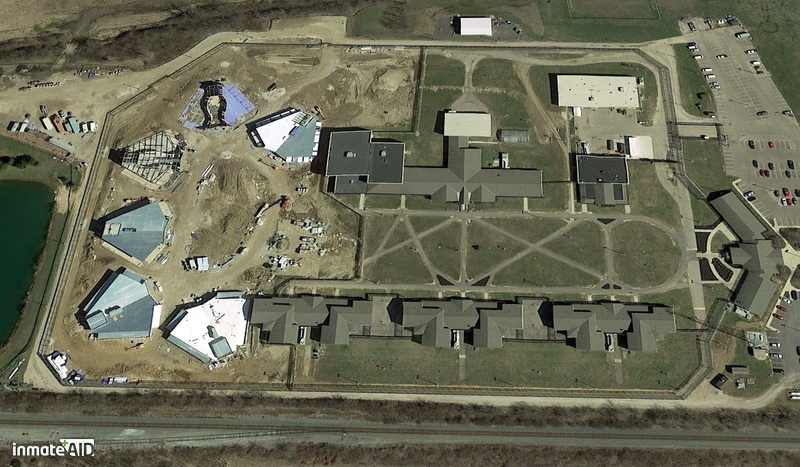-
What is a juvenile detention center?
A juvenile detention center is a secure facility designed to house minors who have been arrested, charged, or convicted of a crime. Unlike adult jails, these centers focus on rehabilitation, education, and structured supervision. Youth housed in these facilities may be awaiting trial, serving short-term sentences, or completing mandated treatment programs aimed at reducing delinquent behavior.
-
How does a juvenile detention center differ from an adult jail?
Juvenile detention centers differ from adult jails in their approach to discipline, rehabilitation, and environment. They prioritize counseling, education, and structured activities over punitive measures. While adult jails emphasize punishment and security, juvenile facilities are designed to address the root causes of delinquent behavior, such as trauma, lack of parental guidance, or substance abuse issues.
-
Who can be sent to a juvenile detention center?
Juvenile detention centers house minors under 18 who have been arrested for criminal activity, ranging from status offenses (such as truancy or curfew violations) to serious felonies like robbery or assault. Some youth may also be placed in detention for violating probation, running away from court-mandated programs, or awaiting transfer to another facility.
-
What types of offenses lead to juvenile detention?
Youth may be detained for a variety of offenses, including property crimes (theft, vandalism), drug-related offenses, assault, gang activity, or firearm possession. In some cases, juveniles are detained for non-criminal behavior, such as repeatedly skipping school or running away from home. The severity of the offense, prior record, and risk level typically determine whether a juvenile is detained or placed in an alternative program.
-
How long do juveniles stay in detention centers?
The length of stay depends on the case. Some juveniles are held for a few days or weeks while awaiting trial, while others may serve months or years depending on their sentence. Youth placed in long-term detention typically participate in rehabilitation programs, educational courses, and mental health counseling. Courts may also mandate step-down programs, where youth transition into community-based supervision before full release.
-
Are juvenile records sealed after release?
In many states, juvenile records are sealed or expunged once the individual reaches adulthood, provided they meet certain conditions. However, serious offenses such as violent felonies or sex crimes may remain on record, potentially affecting future employment, housing, and educational opportunities. In some cases, a juvenile may petition the court to have their record expunged after demonstrating rehabilitation.
-
Do juveniles in detention attend school?
Yes, most juvenile detention centers provide on-site educational programs that allow youth to continue their schooling while in custody. These programs may include core academic subjects, GED preparation, and vocational training. Some facilities work with local school districts to ensure that credits earned in detention transfer back to public schools upon release.
-
Can family members visit juveniles in detention?
Yes, but visitation policies vary by facility. Families typically need to schedule visits in advance, follow strict security protocols, and comply with dress code regulations. Some detention centers offer video visitation or family counseling sessions to strengthen relationships before the juvenile is released. Regular contact with family members can significantly reduce recidivism and improve rehabilitation outcomes.
-
Are juveniles allowed to make phone calls?
Most juvenile detention centers allow monitored phone calls, though the frequency and duration depend on facility rules, the youth’s behavior, and their case status. In some cases, juveniles may call only pre-approved family members or legal representatives. Facilities may also restrict calls if an inmate violates behavioral rules.
-
What rehabilitation programs are available?
Programs often include substance abuse counseling, anger management, cognitive-behavioral therapy, vocational training, and life skills workshops. These services are intended to help juveniles develop positive coping mechanisms, make better decisions, and reintegrate into their communities upon release. Some centers also offer mentorship programs where at-risk youth receive guidance from former inmates or community leaders.
-
Are juveniles placed in solitary confinement?
While some facilities still use room confinement or restricted housing as disciplinary measures, prolonged solitary confinement for juveniles is widely discouraged due to its negative psychological effects. Many states have passed laws limiting or banning solitary confinement for minors, encouraging the use of alternative discipline methods such as behavioral interventions and conflict resolution programs.
-
Can juveniles be transferred to adult prison?
In some cases, juveniles may be tried as adults for severe offenses, such as murder, armed robbery, or sexual assault. If convicted, they can be transferred to adult prison upon turning 18. Some states allow judges to reconsider these transfers based on the juvenile’s rehabilitation progress, age, and psychological evaluations.
-
What rights do juveniles have in detention?
Juveniles have the right to education, medical care, legal representation, and protection from abuse. They are also entitled to due process, meaning they cannot be detained indefinitely without a hearing. Inmates must be provided with access to rehabilitative services and fair treatment under the law. Any allegations of abuse or mistreatment must be investigated by oversight agencies.
-
How do juveniles reintegrate into society after detention?
Many juvenile detention centers offer reentry programs, including mentorship, transitional housing, probation supervision, and vocational training. Youth are often connected with caseworkers, social services, and education programs to help them successfully reintegrate. Some facilities also arrange family reunification counseling to strengthen support systems at home.
-
What happens if a juvenile violates probation after release?
If a juvenile violates probation, consequences can range from increased supervision and mandatory counseling to community service or re-detention. In severe cases, the juvenile may be returned to detention or sent to a more restrictive program. Courts typically evaluate the circumstances of the violation, the individual’s progress, and any external factors before making a decision.









